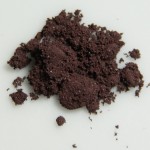The world population has increased from 1.5 billion to 6.1 billion in just a century. As the world’s population continues to increase rapidly, food shortage becomes one of humanity’s greatest problems.
Scientists at the University of British Columbia and the University of North Carolina recently discovered a class of genes on the plant, Arabidopsis which was responsible for plant immunity against harmful pathogens. Pathogens are foreign organisms such as viruses, bacteria or microorganisms that can cause diseases.
A proper functioning immune system is able to recognize and eliminate these pathogens, while not harming healthy host cells. Certain receptors in organisms are responsible for differentiating harmful pathogenic cells from healthy cells. Without proper functioning immune systems, plants are susceptible to disease. Plant disease is the leading cause of crop failures, therefore a better understanding of the plant immune system could have significant impacts in agriculture. With a growing world population to feed, preventing crop failures have become many scientists’ priority.
The research, which was led by Dr. Oliver Dong focused on examining the effect of a class of receptors on Arabidopsis known as TNL on the plant’s immunity. Immune receptors such as TNLs are responsible for detecting pathogens in the body. They are structures in a plant that can recognize and bind to a pathogen such as a bacteria after it has invaded the plant. Once the receptor binds to the pathogen, it can signal an immune response in the plant. The plant’s’ immune response will try to kill the pathogen after it has been triggered by the receptors, but some of the pathogens may be able to resist the immune response and go on to cause disease.
Researchers discovered that by inactivating one of the three TNL receptors through a mutation, the immune system of the plant was actually more active at all times. This heightened immune response in these modified plants meant that they were more resistant to pathogens and their associated diseases.
Although the genetic makeup of Arabidopsis and crops such as rice are extremely different, researchers say that the process of how plants defend themselves against pathogens are universal amongst all plant species. Thus, they are hoping to use the information from this research to develop new strategies to improve plant immunity in highly demanded crops such as rice and wheat. Scientists hope to develop crops that are more resistant to diseases to secure the world’s food supply.
However, scientists are still concerned about the public’s misconceptions surrounding Genetically Modified Organisms (GMOs). Gaining the public’s trust and correcting these misconceptions have been their biggest struggles. Lead researcher, Oliver Dong explains that the reality of GMOs is quite different from what people expect.
Genetic engineering may be the solution to securing the world’s food supply. Nevertheless, it is also the scientist’s’ job to communicate the facts of GMOs to the public to mend misconceptions of GMOs. Scientists realize that gaining the public’s trust will continue to be a challenge. As more scientists are coming around to GMO safety, they hope to work together to gain the public’s trust.
Posted by Gulaab, Johnny, Olivia and Lorraine




![SEWAGE_SLUDGE_SETTLES_ON_BOTTOM_OF_BEAKER._SEWAGE_TREATMENT_PLANT_-_NARA_-_543811[1]](https://blogs.ubc.ca/sewagesludgeash/files/2016/01/SEWAGE_SLUDGE_SETTLES_ON_BOTTOM_OF_BEAKER._SEWAGE_TREATMENT_PLANT_-_NARA_-_5438111-150x150.jpg)